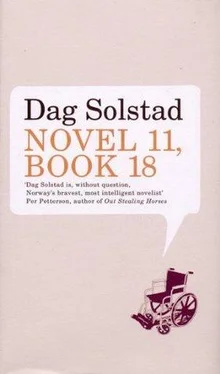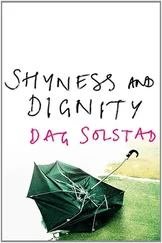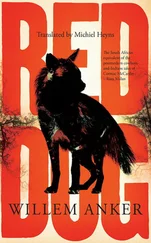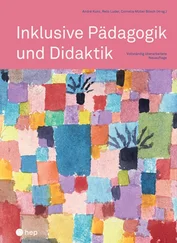For perhaps I misunderstand it all, he thought. Perhaps this is a communication from a ‘son’. Perhaps this is ‘the voice of the son’. A young man who opens his heart to his father about the journey he has set out on and the adventures that await him out there. A message, that is, which he brings from out there, to his father. If that was the case, did his voice signify that the one who opened his heart was his father’s heir, the one who would carry life onwards? Was Peter letting him know how he would seize the torch? Possibly, possibly. However preachy his manner, it was perhaps a ‘son’ who spoke, far away, but still perhaps a ‘son’. Who spoke to him. Who tried to reach him, as a son. Bjørn Hansen felt moved, and uneasy. For was there not in this communication also — if it really did come from his ‘son’, — a tacit enquiry, well, a secret hope, that his father, far down there, had to offer him his recognition? A small spark? Which was to be kindled between the two of them? Was it possible that Peter had done so? Something Peter certainly could do, but which he himself had forfeited the possibility of doing. Was he trying to make himself known now? Not in the form of an ‘attack’, which he had waited for and waited for several months on end, but in this highly surprising way? Suddenly it dawned on Bjørn Hansen that his son, who had talked and talked in his preachy fashion, self-confidently and boastfully, and in a patronising tone, had perhaps really been saying all the time, again and again, ‘Say something to me, Dad. Recognise me for what I am, recognise the life I’m going to live and that I’m preparing myself for. Do that, Dad.’ Could it be possible that he had a son who for several months, from the very moment he had come to Kongsberg and settled in as a guest in his father’s flat, had asked, time and again, for a word of recognition? Yes, it was possible. Was this really a ‘son’ who was trying to call attention to his own life and his life’s purpose, in order to get recognition from his ‘father’? Astonished, Bjørn Hansen had to admit that one could not discount that possibility. And if that were the case, then he could, by giving this recognition, become Peter’s father in Peter’s own eyes and consequently be reunited with his son. He could say the redeeming word, with the result that the curse that stood between them would lose its efficacy. But even if this were the case, it was nevertheless no use. It could just as well be the exact opposite. For he could not give Peter this recognition. It was that simple and shocking. Peter could only talk and talk. And continue to preach at him, in his too loud voice, which changed nothing. My poor orphan son, he thought.
Christmas was coming to Kongsberg too. Peter had a kind of mock exam just before the holidays, and when it was over he packed and went home to Narvik to celebrate there. He had only one suitcase with him when he left, and his father accompanied him to the station. The train arrived, and Bjørn held out his hand to him. ‘I’ll be back,’ Peter said. ‘After Christmas. It’s so nice staying with you.’ His father smiled and wished him a pleasant journey. You’ll be back after Christmas, he thought. But you won’t stay for very long. That I know.
Christmas came. Bjørn Hansen celebrated Christmas quietly, all alone, only interrupted by dinner at Berit and Herman Busk’s the second day of Christmas, as usual. Peter returned at the beginning of January, and in the middle of that same month Bjørn Hansen left for Vilnius.
Where is Vilnius? Vilnius is situated somewhere or other in Europe. It is impossible to state it more precisely. You take the train from Kongsberg to Oslo, fly from Fornebu to Kastrup in Copenhagen, and after an hour’s wait in the transit hall you board a plane bound for Vilnius. After a flight of an hour and twenty minutes, you land in the airport of Lithuania’s capital. Then you are one hundred and twenty miles from Minsk, if you travel in an easterly direction. Riga is one hundred and eighty miles to the north-west, Warsaw two hundred and forty miles south. It is four hundred miles to St Petersburg, five hundred and fifty to Moscow, and five hundred and twenty miles to Berlin. Midway between Berlin and Moscow, somewhere in Europe. To the Baltic coast, with Lithuania’s most important seaport, Klaipeda, and to the bathing resorts, it is one hundred and fifty miles.
So Bjørn Hansen found himself in Vilnius. He was staring out of the window of his room on the eighteenth floor of the typical Soviet-Russian Hotel Lithuania, down at the city on the other side of the river Neris. An old, venerable city. In Europe. A castle rose proudly on the top of a hill, together with Gedimina’s tower, and below it lay the city with its churches, buildings, towers and walls. Bjørn Hansen was moved by the view from the window and decided to go out at once. Shortly afterwards he was crossing a stone bridge over to the other side of the river, where this old city was located. A city with a skeleton from the thirteen hundreds. A centuries-old home for Lithuanians, Poles, White Russians and Jews. Now a Lithuanian population with a large Russian minority. A place with narrow cobbled streets and a smell of coke. With smoke rising and settling on the city. A smell of coke and rancid cooking oil. Bjørn Hansen hurrying through the streets in his western clothes, quite drab by Norwegian standards. Everyone looked at him. They stood watching him from cramped courtyards. In their worn, old-fashioned clothes. With bundles under their arms. Bent over and hunchbacked. But they observed him with eyes shining with curiosity. He was an envoy from America. Cabbage and potatoes. Rolls of fabric in the shops lining the streets. A man pulling a cart full of empty milk bottles. It rattles. Bjørn Hansen hurried along, actually feeling rather uncomfortable. The old city gate, from the 1500s. St Kasimir Church. A theatre from the 1700s. The palace of the archbishops. The new City Hall, from the 1700s. The university, from the 1500s, with St John Church. The Gedimina Square with the cathedral and the freestanding bell tower. Ding-dong.
It was cold and he shivered. It was the middle of winter. People were hurrying through the narrow streets. Suddenly it began to snow. It was such a dark day in Vilnius, and suddenly it began to snow. Yes, here, in this city, Bjørn Hansen got to see it snow in Central European fashion. The snow fell wet and heavy upon Vilnius, which long ago was called Lithuania’s Jerusalem and between the wars was a Polish provincial town. Large white snowflakes in the air, which came floating down, got sucked up by the ground and evaporated. The snow fell in heavy white flakes between the baroque buildings, over the tortuous narrow streets, down on the people’s padded shoulders and into their hair, wetting it. All at once the streets were full of schoolchildren, who tried to catch the snowflakes in the air. They suddenly entered the street from small, narrow openings in the row of houses, dressed in school uniforms and carrying their books in slings, which they hastened to get rid of by putting them on cornices, into niches in the walls, or onto stairs, before they ran into the middle of the street to catch the snow with their eager hands. They clapped as they caught the snow in the air, at a quick pace, in the vain hope of catching enough snowflakes to make a snowball. Bjørn Hansen hurried on through the city while observing this strange sudden scene which unfolded so spontaneously before his eyes. He again came to the old stone bridge across the river Neris and to his secluded hotel, Lithuania, which throned it on the other side.
He shook the melted snow from his hair as he stepped into the reception of Hotel Lithuania. The reception was deep and dark, in a pompous style of the 1960s. Thick carpets on the floor, dim lighting, with, at the very end, a long reception desk with twinkling small lights. In front of it stood a party of people, who were jovially greeting another party with hugs and exaggerated gestures. Bjørn Hansen hurried up, because he knew the people who made up one of the parties. It was the party to which he, too, belonged and they were now greeting their Lithuanian hosts. For Bjørn Hansen was in Vilnius as a member of a delegation. He had been handpicked for a Norwegian delegation of municipal civil servants bound for Lithuania for the purpose of teaching the Lithuanians democracy. And now, here they were, greeting those who were to be taught. They would have discussions and conversations with Lithuanians who were selected to fill important positions in the local administration of this ex-Soviet republic, which had now declared its independence. The object was for the Norwegians to give the Lithuanians some good advice on how local democracy can function in a sensible way, so that the local population can both be governed and take part in the governing. It was not unreasonable that such a delegation would take along a Norwegian town treasurer, nor that this Norwegian treasurer was Bjørn Hansen, because, after all, he had served as such for almost twenty years, and had also during that time held several positions of trust within the Association of Norwegian City and Borough Treasurers.
Читать дальше












